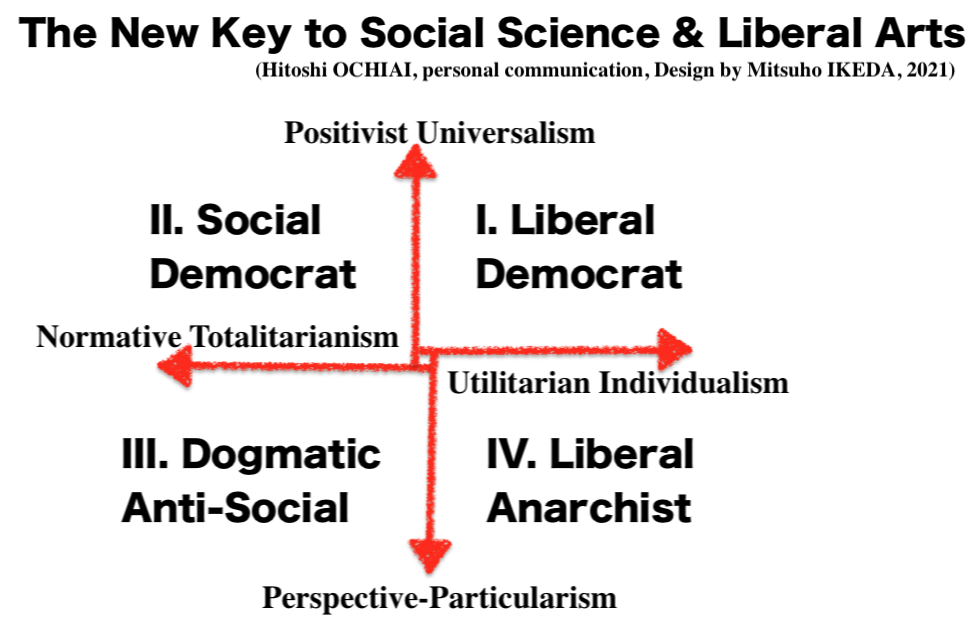ピーター・ウィンチ以降の人文社会科学の理念とは?
Peter Winch and Debate on rationality in social science

ピーター・ウィンチ以降の人文社会科学の理念とは?
Peter Winch and Debate on rationality in social science

Winch, Peter, The idea
of a social science and its relation to philosophy, 1958, 2015. with a
new introduction by Raimond Gaita
(2015)
本の紹介:"In the fiftieth anniversary of this book's first release, Winch's argument remains as crucial as ever. Originally published in 1958, The Idea of a Social Science and Its Relation to Philosophy was a landmark exploration of the social sciences, written at a time when that field was still young and had not yet joined the Humanities and the Natural Sciences as the third great domain of the Academy. A passionate defender of the importance of philosophy to a full understanding of 'society' against those who would deem it an irrelevant 'ivory towers' pursuit, Winch draws from the works of such thinkers as Ludwig Wittgenstein, J.S. Mill and Max Weber to make his case. In so doing he addresses the possibility and practice of a comprehensive 'science of society'."- Nielsen BookData.
ピーター・ウィンチ『ある社会科学の理念と哲学との
関係』(1958)は、ラッシュ・リーズの弟子、ピーター・ウィンチが、社会科学の定立条件として、1)哲学の侍女からの脱却、2)実証主義科学化への拒
絶と抵抗、3)後期ウィトゲンシュタインの影響を色濃く受けたルールと理解、そして、それに基づく行動やその解釈への傾注、4)J・S・ミル、ヴィルフレ
ド・パレート、マックス・ウェーバーらが定式化した社会現象分析への認識論的基盤への回帰、などから特徴づけられる、社会科学の理念の定立に向けた試論で
ある。
章立て
Preface to the Second
Edition
Part 1:
Philosophical
Bearings
1. Aims and
Strategy
2. The
Underlabourer Conception of Philosophy
3. Philosophy and
Science
4. The
Philosopher's Concern with Language
5. Conceptual and
Empirical Enquiries
6. The Pivotal
Role of Epistemology in Philosophy
7. Epistemology
and the Understanding of Society
8. Rules:
Wittgenstein's Analysis
9. Some
Misunderstandings of Wittgenstein
Part 2:
The Nature of
Meaningful Behaviour
1. Philosophy and
Sociology
2. Meaningful
Behaviour
3. Activities and
Precepts
4. Rules and
Habits
5. Reflectiveness
Part 3:
The Social Studies
as Science
1. J.S. Mill's
'Logic of the Moral Sciences'
2. Differences in
Degree and Differences in Kind
3. Motives and
Causes
4. Motives,
Dispositions and Reasons
5. The
Investigation of Regularities
6. Understanding
Social Institutions
7. Prediction in
the Social Studies
Part 4:
The Mind and
Society
1. Pareto: Logical
and Non-Logical Conduct
2. Pareto:
Residues and Derivations
3. Max Weber:
Verstehen and Causal Explanation
4. Max Weber:
Meaningful Action and Social Action
Part 5: Concepts
and Actions
1. The Internality
of Social Relations
2. Discursive and
Non-Discursive 'Ideas'
3. The Social
Sciences and History
4. Concluding
Remark
Peter Winch, 1926-1997 の解説
"Peter Guy Winch (14 January 1926 – 27 April 1997) was a British philosopher known for his contributions to the philosophy of social science, Wittgenstein scholarship, ethics, and the philosophy of religion. Winch is perhaps most famous for his early book, The Idea of a Social Science and its Relation to Philosophy (1958), an attack on positivism in the social sciences, drawing on the work of R. G. Collingwood and Ludwig Wittgenstein's later philosophy..../Winch was born on 14 January 1926, in Walthamstow, London. He attended Leyton County High School for boys,[2] before going up St Edmund Hall, Oxford to read Philosophy, Politics and Economics. Following the outbreak of World War II, he served in the Royal Navy 1944–47, before graduating from the University of Oxford in 1949. He was a lecturer in philosophy at the Swansea University from 1951 until 1964. He was influenced by his colleagues Rush Rhees and Roy Holland, both experts in the philosophy of Ludwig Wittgenstein. In 1964, he moved to Birkbeck College, University of London, before becoming Professor of Philosophy at King's College London in 1967. During this period, he served as president of Aristotelian Society, from 1980 to 1981. In 1985 Winch moved to the United States to become Professor at the University of Illinois at Urbana-Champaign./ He died on the 27 April 1997, in Champaign, Illinois/ ... He died on the 27 April 1997, in Champaign, Illinois "
"Peter Winch
saw himself as an uncompromising Wittgensteinian. He was not personally
acquainted with Wittgenstein; Wittgenstein's influence upon him was
mostly mediated through that of Rush Rhees (1905-1989), who was his
colleague at
the University College of Swansea, now known as Swansea University, and
whom Wittgenstein appointed as one of his literary executors.[7]
Winch's translation of Wittgenstein's Vermischte
Bemerkungen (as edited
by Georg Henrik von Wright) was published in 1980 as Culture and Value
(with a new translation by Winch of a revised edition by Alois Pichler
appearing in 1998).[8] After the death of Rhees in 1989, Winch took
over his position as literary executor./ From Rush Rhees, Winch derived
his interest in the religious writer Simone Weil. Part of the appeal
was a break from Wittgenstein into a very different type of philosophy
which could nevertheless be tackled with familiar methods. Also Weil's
ascetic, somewhat Tolstoyan, form of religion harmonised with one
aspect of Wittgenstein's personality./ At a time when most
Anglo-American philosophers were heavily under the spell of
Wittgenstein, Winch's own approach was strikingly original. While much
of his work was concerned with rescuing Wittgenstein from what he took
to be misreadings, his own philosophy involved a shift of emphasis from
the problems that preoccupied Oxford style ‘linguistic’ philosophy,
towards justifying and explaining 'forms of life' in terms of
consistent language games. He took Wittgensteinian philosophy into
areas of ethics and religion, which Wittgenstein himself had relatively
neglected, sometimes showing considerable originality. An example is
his illuminating treatment of the moral difference between someone who
tries and fails to commit murder and someone who succeeds, in his essay
"Trying" in Ethics and Action. With the decline of interest in
Wittgenstein, Winch himself was increasingly neglected and the
challenge his arguments presented to much contemporary philosophy was
sidestepped or ignored. In insisting on the continuity of
Wittgenstein's concerns from the Tractatus through to the Philosophical
Investigations, Winch made a powerful case for Wittgenstein's mature
philosophy, as he understood it, as the consummation and legitimate
heir of the entire analytic tradition.[9]" - Peter Winch.
●人文社会科学の理念を(P・ウィンチ以降に)救済 するためのプログラム・プロトコル
| 0)以下のような情報と歴史を知る必要がある、すなわち、 1)1960年以降の「社会科学」と「リベラルアーツ」の70年間の総括、 2)1960年代末の学問への知的反省と「学生革命」の影響や、そこからはじまるそれぞれの分野の批判的研究の継承と現状、 3)ウィンチの仮想敵であった実証主義の現在(21世紀以降)への分析、 4)各国の政府と高等教育機関の関係、文教政策と知的エリートの関係、それらについての市民的理解度、 5)人文学と社会科学と自然科学の学問間の位相関係、学際研究や超域と呼ばれている研究と教育の現状 6)「研究の倫理」というレギュレーターの登場以降の、研究と研究対象、ならびに研究者間の関係の明確化、ならびに 7)以上の諸現象の各個分析とホーリズム的総合。 |

同志社大学の落合仁司教授の示唆による、21世
紀の人文社会科学と、権力概念の布置について(デザインは池田光穂)
●「合理性論争」に関するgary_zabeさんの 解説
"In 1937, the British
anthropologist, Richard Evans-Pritchard, published a book that was
destined to become a classic of anthropology, Oracles, Witchcraft, and
Magic Among the Azande. (The Azande are a sub-Saharan agricultural
people living in the Sudan and parts of the Congo Republic.) The book
challenged the usual anthropological dismissal of the beliefs and
practices of "primitive peoples" as irrational, and attempted to
demonstrate that the consultation of oracles, belief in witchcraft, and
the practice of magic make sense within the overall context of Azande
culture. In 1958, the philosopher, Peter Winch, wrote an article based
on his reading of Evans-Pritchard's book titled, "Understanding a
Primitive Society." In this piece, Winch agreed with Evans-Pritchard's
sympathetic approach to the occult aspects of Azande society, but
argued that the approach must be taken further than Evans-Pritchard was
himself willing to go. Evans-Pritchard had tried to show that the
Azande's belief in witches helped them make moral and psychological
sense of the misfortunes that befell them, even though we Westerners
know that witches do not exist. Winch's question for Evans-Pritchard
is, what is the framework within which we make that judgment? If it is
the framework of Western science, then the judgment that there are no
witches is simply the result of imposing upon the Azande a set of
concerns and standards of reasoning that belong to our culture, but not
to theirs. Different cultures have different criteria for rational
belief and action. Our standards are local to our culture, and no more
objective than anyone else's. Does this leave us with a nihilistic
relativism? Does tolerance and sympathy for other cultures rob us of
any vantage point for making judgments that are simply true or false,
including moral judgments about such practices as slavery, infanticide,
or torture? Is that the price we must pay for treating magic
seriously?" - https://bit.ly/30540G8
●日本におけるピーター・ウィンチ級(ないしはそれ 以上の)社会科学の恩人は?——それは森嶋通夫先生
「森嶋 通夫(Michio MORISHIMA, 1923-2004)【経歴】1923年に大阪市に生まれるが幼少期は神戸に在住し、1936年に神戸市の本山第一小学校を卒業する。七年制の旧制浪速高 等学校を卒業後、1942年10月に京都帝国大学経済学部に進学する[1]。大学在学中の1943年、学徒出陣により、20歳で徴兵される[2]。 1943年12月大日本帝国海軍に入隊し[3]、通信学校を出た後、長崎の大村航空隊へ配属。暗号解読を担当する少尉として赴任した[2]。大村航空隊で は、通信将校として、数多くの特攻隊との通信、沖縄に向かった戦艦大和との通信、沖縄戦の通信などを担当した。 海軍中尉で敗戦を迎えた後、高田保馬・青山秀夫について経済学・社会学を学び、1946年に京都大学を卒業する。その後は経済学部の助手を経て、1950 年27歳の若さで、京都大学経済学部の助教授となるが[4]、1年後の1951年大阪大学法経学部助教授に転出する[5]。1954年3月、大阪大学経済 学部付属社会経済研究室の創設とともに、助教授として併任する[6]。1963年に、40歳で大阪大学教授となる。1966年4月、大阪大学社会経済研究 所に改組され、安井琢磨(Takuma Yasui, 1909-1995)とともに日本における近代経済学研究の中心として広く世界に名を轟かせる存在となったといわれる[6]。その後、研究所内部での意 見対立もあって(依田高典は森嶋が日本を飛び出した理由を同僚との喧嘩別れとする[7][8])、1968年に渡英しエセックス大学客員教授、1970年 からロンドン・スクール・オブ・エコノミクス (LSE) の教授として、1988年の定年まで在籍した[4]。 LSEにおいては、1978年に Suntory Toyota International Centres for Economics and Related Disciplines(STICERD - 「スティカード」と発音)という研究所の設立に貢献し、初代所長となる[9]。名前が示す通り、サントリーとトヨタからの寄付金を元に設立された研究所だ が、イギリス学界では私企業からお金をもらって研究をすることは伝統的にタブーとされていて、そうした固定観念を変えるべく同僚の教授たちの説得に奔走し た(その後、現在に至るまでSTICERDは、公共経済学、開発経済学、政治経済学の分野で多数の研究成果を経済学界に送り出している)。 1965年に41歳で日本人として初めてエコノメトリック・ソサエティー(国際計量 経済学会)会長に就任した(後に宇沢弘文 が1976年に、1994年に根岸隆が会長に就任)[10][4]。
【業績】森嶋道夫の業績には3つのカテゴリーがあり、一番目はデヴィッド・リカードの体系
に基づく均衡理論の動学化である。二番目は経済学に社会学的アプローチを加味した交響的経済学を提唱したことである。三番目はレオン・ワルラス、カール・
マルクス、デヴィッド・リカードの経済学の学説史研究である[1]。数理経済学者としてレオン・ワルラス、カール・マルクス、デヴィッド・リカード等の理
論の動学的定式化に業績を残している。最も影響力を持つ研究はワルラス理論だが、マルクス理論を数理化させた「数理マルクス経済学」を手掛けている。弟子
の小室直樹によれば、森嶋はノーベル経済学賞の候補として何度か名前が挙がっており、最も受賞に近かった日本人だという[2]。
森嶋の経済学が注目された理由は、アメリカの経済成長理論は一部門または二部門を扱うモデルに過ぎなかったが、森嶋とジョン・ヒックス(John Richard Hicks,
1904-1989)は多部門セクターを扱う産業全体に対する一般均衡分析を動学化したことにあった[1]。」
Links(解釈)
Links(理解)
リンク
文献
その他の情報


